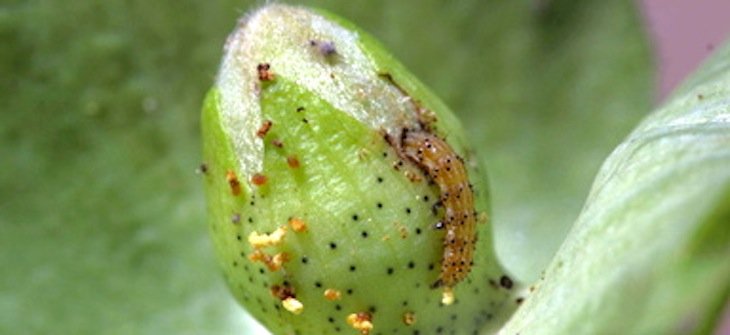Longtime agriculture scientist Dr. Noel Phil “Tug” Tugwell dies at the age of 88
by November 2, 2021 11:37 am 785 views

Longtime entomologist Noel Phil “Tug”Tugwell died Oct. 20 in Fayetteville. He was 88.
He served the Arkansas Agricultural Experiment Station and the Dale Bumpers College of Agricultural, Food and Life Sciences at the University of Arkansas as an entomology researcher and teacher for 36 years.
He is survived by his wife, Ramona, daughter Tracey McCartney, son Noel Tugwell, sister Carolyn Boyer, and seven grandchildren.
“He was one of the great and good entomologists,” said Don Steinkraus, professor of entomology for the Agricultural Experiment Station, the research arm of the University of Arkansas System Division of Agriculture. “They truly do not make entomologists, scientists, scholars, professors like Dr. Tugwell anymore.”
A native of Levelland, Texas, Tugwell was an Air Force veteran and worked for the Fish and Wildlife Service in Alaska before completing a master’s degree at the University of Arkansas and a doctorate at Louisiana State University. He joined the Division of Agriculture in 1966 and retired in 2002.
“He was unselfish with his expertise, his time, and shared knowledge and help without expecting anything in return,” Steinkraus said. “He would help me with experiments — I mean field experiments in the heat of the summer in Marianna, hard physical work — and expected little or nothing in return. I always tried to include him as an author, but he didn’t really care. He was doing the work and not looking ahead to kudos.”
Steinkraus said Tugwell got him started on a 20-year project on cotton aphids that defined his career success.
“When I first arrived in Arkansas he told me, ‘Don, something is killing aphids in cotton. No one knows what it is. Maybe you can find out.’ He gave me this idea with no expectation of anything but helping growers. And, in fact, I did find out and mined that vein of knowledge for years,” Steinkraus said. “I still put Tug’s photo in my talks and thank him for his generosity and kindness.”
Mark Cochran, who recently retired after 39 years with the Division of Agriculture and a decade leading the division as U of A System vice president-agriculture, remembers Tugwell as the motivating force behind the COTMAN project.
COTMAN is a cotton management system that times everything from irrigation and fertilizer to pest control and harvest preparation to the physiological development of the plant. It is widely used in cotton production in Arkansas and other states. Cochran was part of the COTMAN research team that also included Tugwell, cotton researchers Fred Bourland and Derrick Oosterhuis, and research associate Diana Danforth.
“Phil was a very unusual combination of a great southern gentleman and a highly observant scientist,” Cochran said.
Tugwell had observed that cotton plants give off physiological signals that indicate when they are experiencing stress from pests, disease or lack of water.
“His observations were key in initiating the COTMAN program,” Cochran said. “He was very, very innovative and, in many ways, the genius behind COTMAN.”
Bourland, a Division of Agriculture cotton breeder, couldn’t agree more that Tugwell was the driving force behind that project, although he was loathe to take the credit.
Bourland said the COTMAN research project was propelled by Tugwell, most often during lunch meetings. “We ate lunch and just discussed what we were doing,” he said. “A lot of progress came out of those meetings.”
Danforth was charged with guiding computer programmers to design the software and then implementing it once it was ready to go. She also remembered those lunch meetings.
“The COTMAN research group would meet weekly in the student union,” Danforth said. “Dr. Tugwell would present, in his smooth Texas drawl, the ideas he was working on that week, and then proceed to write them on napkins for me to take back and work on implementing.”
Tim Kring, former Arkansas Agricultural Experiment Station entomologist who now is entomology department head at Virginia Tech, said Tugwell had to change some minds to get the COTMAN program off the ground.
“It was a religion for him,” Kring said. “He was telling people that you could look at a cotton plant and predict how it would handle stresses throughout its growth and reproduction. When people said it couldn’t be done, he’d say, ‘No, and I’m going to change your mind.’ And he did.
“Tug had a way of bringing people around to his way by really listening to what they were saying,” Kring said. “And he brought you around to change the way you think and approach problems. He changed the way that I approach problems.”
